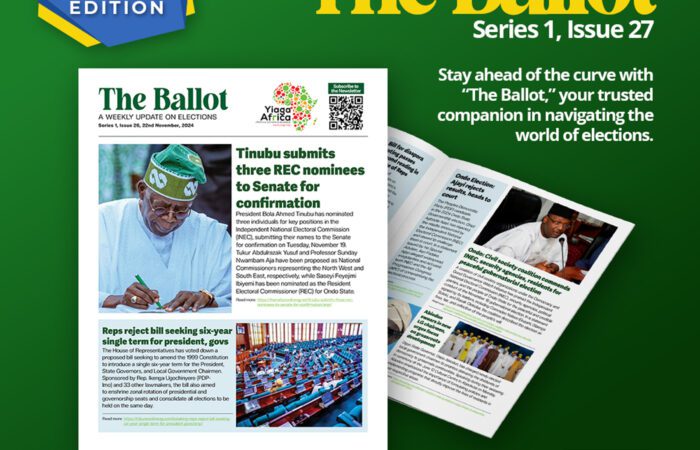An Abuja Division of the Federal High Court has nullified the amendment of Section 25 of the Electoral Act, which was passed in February by the National Assembly.
In a judgement on Wednesday, the court presided by Justice Ahmed Mohammed ruled that only the Independent National Electoral Commission (INEC) had the powers to create an election template for the country.
The judge also ruled that any attempt by the National Assembly to amend the Section 25, as done by the legislature, would first require an amendment of the constitution.
The Accord Party filed the application after both chambers of the National Assembly attempted to implement Section 58 of the constitution which allows the legislature to override the decision of the president.
The party asked the court to determine if INEC was not solely empowered to carry out its function of overseeing the election timetable in Nigeria.
The application by Accord Party was part of events that trailed the decision of the National Assembly to reorder the sequence of the 2019 general elections, putting the presidential election last.
This development initiated a series of controversies in the polity with some senators of the ruling All Progressives Congress (APC) saying it was targeted at Mr. Buhari, to prevent his re-election.
Both chambers of the National Assembly, though dominated by the APC, amended the order of the election. The proposed sequence of elections would make the National Assembly election come first in 2019, followed by governorship and state Houses of Assembly, and presidential as last.
That was against the sequence rolled out by Independent National Electoral Commission (INEC) late 2017, which put presidential and National Assembly elections first and governorship and state assembly to follow.
President Muhammadu Buhari had on March 13 refused assent to the bill, after it was forwarded to his office. He had said the amendments if allowed to pass violate parts of the constitution.
After Mr. Buhari refused assent to the bill in March, the National Assembly attempted to invoke section 58 of the Constitution to override the decision of the president .
Shortly after the bill was refused by the president, the Federal High Court restrained the Senate from proceeding with further actions on the matter.
The Accor Party also asked the court to determine whether the interference of the National Assembly, after INEC had fixed the date for the election, did not amount to an abuse of the separation of powers.
The counsel to the National Assembly, Joseph Daudu, urged the court to dismiss the application, describing it as an abuse of court process.
In the ruling, however, Mr. Mohammed overruled the submission by Mr. Daudu that the application amounted to an academic exercise.
The court ruled that INEC had the sole responsibility to organise and conduct elections, including fixing of dates, among other things.
“It is the sole responsibility of the third defendant (INEC) to organise and conduct elections, including fixing of dates for the elections.
“The power of INEC to organise and conduct elections in this country cannot be taken away by the Electoral Act,” he said.
“After perusing submissions of counsel in this matter, I declare Section 25 of the Electoral Act 2018, which is the section that contravenes the provisions of the Constitution, a nullity.
“The Plaintiff’s suit seeking for the interpretation of certain provisions of the Constitution cannot be said to be an abuse of the process of the court,” the judge said.
Source: Premium Times






